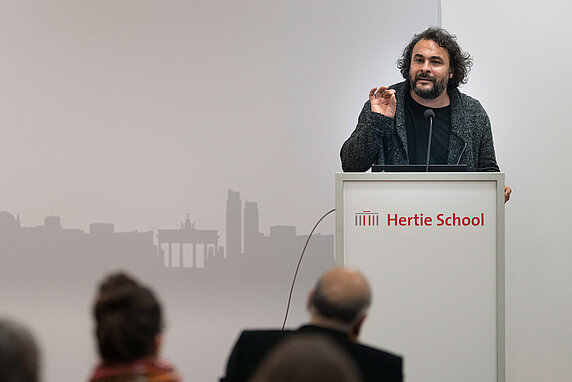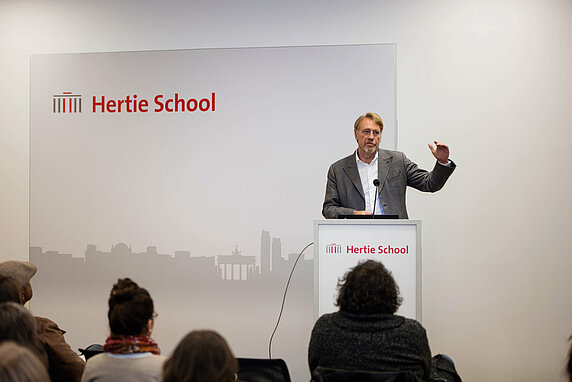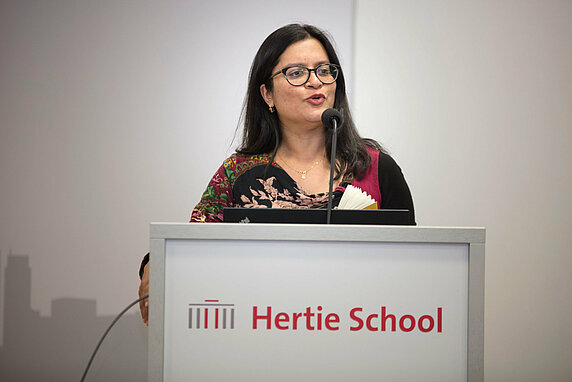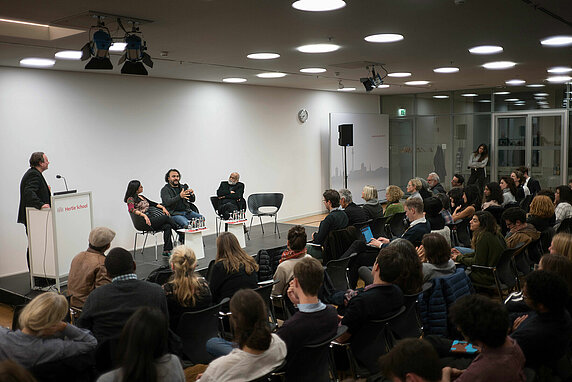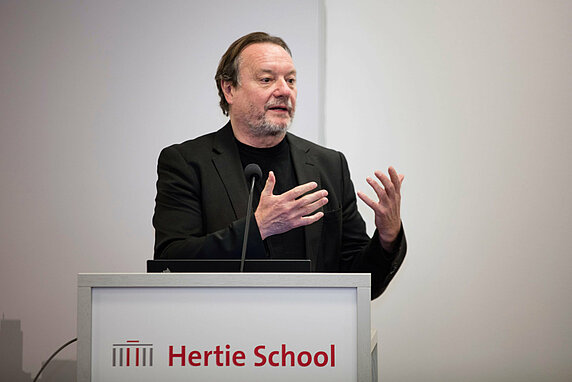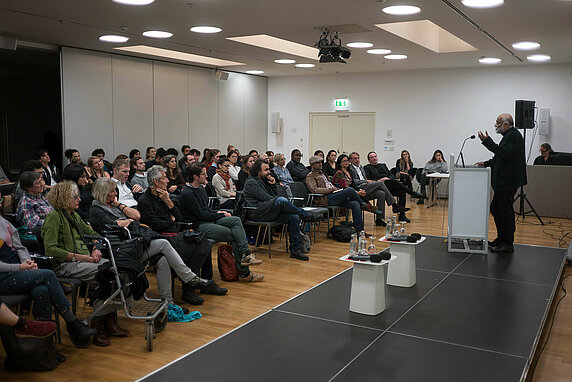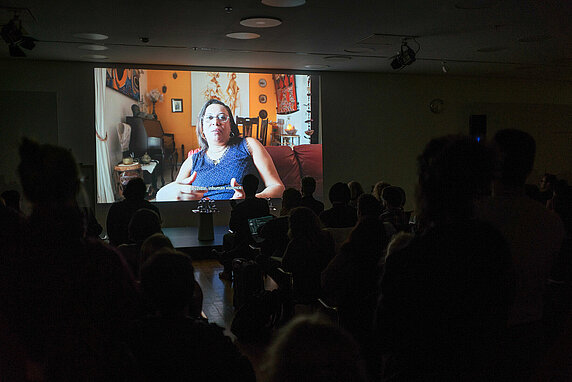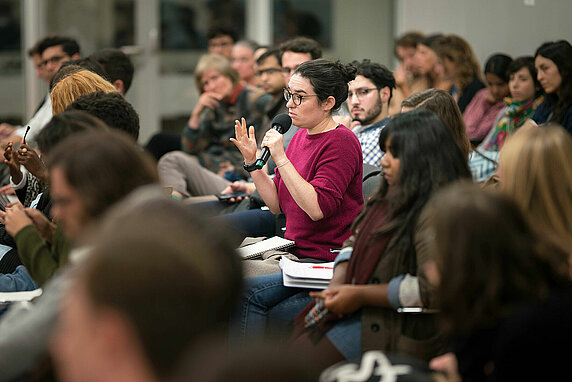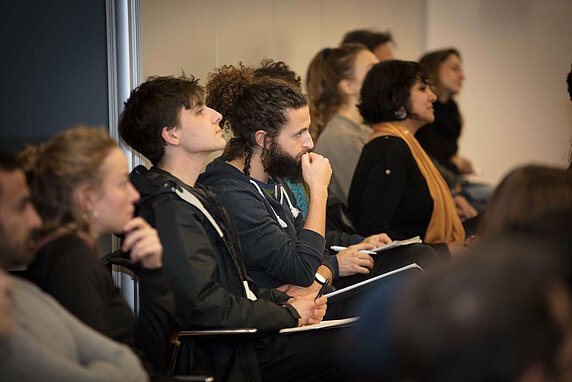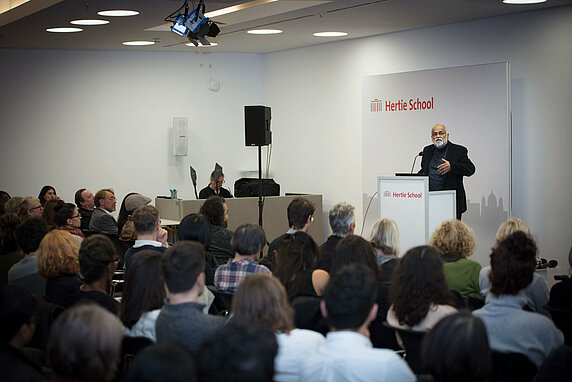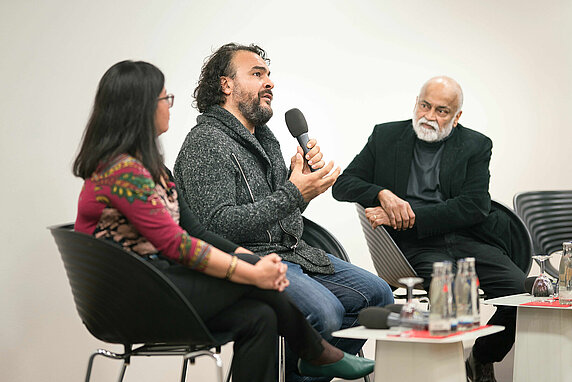Panel discusses why expressions of bigotry, long objectionable, have sprung to life again.
On 28 October artist, activist and a public intellectual Kader Attia, gave a talk at the Hertie School on how expressions of bigotry that were only recently unacceptable, have become the new normal. His lecture discussed how bigotry has been reborn again and how the irrationality of emotion has been rationalised by political manipulators into the hatred of others.
Attia reflected that the world is haunted by wounds from the past that remain in our psyche, and that traumas resulting from the worst moments in history have left lasting scars on society that are like phantom limbs. The artist grew up in Paris and in Algeria and studied at the École Supérieure des Arts Appliqués Duperré and the École Nationale Supérieure des Arts Décoratifs in Paris, and at Escola Massana, Centre d'Art i Disseny in Barcelona.
The experience of living between different cultures, the histories of which over centuries have been characterised by rich trading traditions, colonialism and multi-ethnic societies, has fostered Kader Attia’s intercultural and interdisciplinary approach to research. He explores the perspective societies have on their history, especially experiences of deprivation and suppression, violence and loss, and their effect on how nations and individuals evolve — as each is connected to collective memory.
In her response Ananya Jahanara Kabir, Professor of English Literature at King’s College London, said that Europe has wounds that need to be repaired and that "the resonance of our pasts together is really the future of those pasts".
Andreas Görgen, Head of the Cultural and Communications Department of the Federal Foreign Office, gave words of welcome, as did Helmut K. Anheier, Professor of Sociology and former President of the Hertie School.
This event was a part of the two-year series on The contested idea of Europe: Global perspectives and possibilities for European cultural policy, co-hosted by the Hertie School and the Federal Foreign Office. It was chaired by Arjun Appadurai, Professor of Anthropology and Globalisation at the Hertie School.

